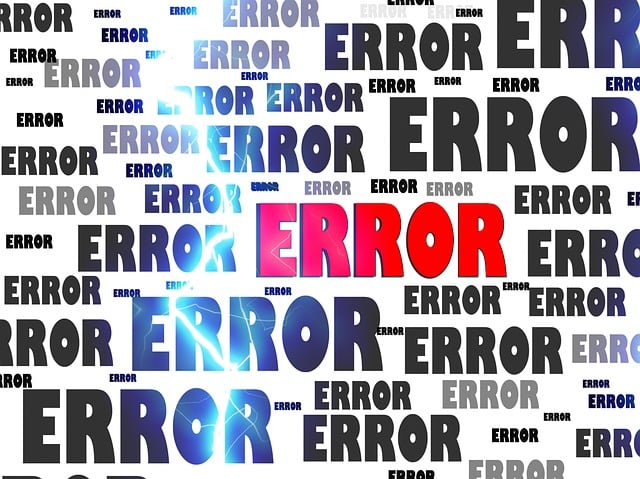Legal professionals in Oregon must navigate a complex criminal justice system by recognizing and avoiding common defense mistakes. An updated Oregon defense guide offers strategic tools to prevent critical errors like inadequate investigations, misinterpretation of evidence, and case analysis lapses. By emphasizing structured approaches, meticulous document examination, client interviews, and comprehensive research, the guide aids attorneys in crafting robust defense strategies for successful trial outcomes, minimizing costly errors, and staying informed about Oregon's evolving legal landscape.
In the complex landscape of Oregon’s legal defenses, recognizing and understanding common pitfalls is crucial for achieving favorable outcomes. This comprehensive guide delves into the critical areas where mistakes often occur, from missteps in the initial legal framework to courtroom presentations and post-trial considerations. By examining these common errors—such as case preparation oversights, management mishaps, and strategic blunders—attorneys can develop robust strategies to avoid pitfalls that plague Oregon’s defense cases. This guide serves as a vital resource for navigating Oregon’s legal landscape with enhanced precision and success.
- Recognizing Missteps in Oregon's Legal Defense Framework
- Common Errors During the Case Preparation Phase
- Navigating Pitfalls in Courtroom Presentations
- Strategies to Avoid Defense Case Management Mishaps
- Post-Trial Considerations: Learning from Past Mistakes
Recognizing Missteps in Oregon's Legal Defense Framework

Recognizing missteps in Oregon’s legal defense framework is crucial for anyone navigating the state’s complex criminal justice system. Common defense mistakes, such as inadequate investigation or failure to challenge evidence, can significantly impact the outcome of a case. Oregon defense attorneys must be vigilant in understanding these pitfalls to provide effective representation.
Avoiding defense pitfalls in Oregon requires a thorough understanding of local laws and procedures. Defense case errors can arise from overlooking crucial details, insufficient preparation, or misinterpreting legal precedents. By staying informed about the latest legal developments and employing strategic planning, attorneys can ensure their clients receive the best possible defense. An Oregon defense guide should be a comprehensive resource for navigating these challenges effectively.
Common Errors During the Case Preparation Phase

During the case preparation phase, several common errors can significantly undermine an Oregon defense strategy. Legal professionals often find themselves caught in a web of mistakes that could have been avoided with meticulous planning and attention to detail. For instance, failure to thoroughly review evidence can lead to crucial facts being overlooked, potentially weakening the defense’s argument. Similarly, inadequate case analysis may result in misinterpreting legal precedents, which can be detrimental during trials.
A comprehensive Oregon defense guide emphasizes the importance of careful document examination, client interviews, and thorough research. Avoiding these defenses pitfalls requires a structured approach, where each aspect of the case is meticulously scrutinized. By doing so, legal teams can ensure their strategies are robust, leaving no room for costly errors that could impact the overall outcome of the trial.
Navigating Pitfalls in Courtroom Presentations

Navigating Pitfalls in Courtroom Presentations
In preparing for a courtroom presentation, attorneys in Oregon must be vigilant to avoid common pitfalls that can weaken their defense strategy. Among the most frequent mistakes are inadequate research, misstating facts or legal principles, and failing to anticipate opposing counsel’s arguments. These errors can lead to loss of credibility with the judge and jury, undermining the overall case. To mitigate these risks, Oregon defense attorneys should meticulously review evidence, double-check their understanding of applicable laws, and prepare comprehensive responses to potential counterarguments.
Moreover, effective presentation requires clear and concise communication. Attorneys should avoid jargon that might confuse the lay audience and instead use simple language to explain complex legal concepts. Visual aids and organized notes can also enhance comprehension. By adhering to these guidelines, defense attorneys in Oregon can significantly reduce the likelihood of making case-damaging mistakes and increase their chances of presenting a compelling and persuasive argument.
Strategies to Avoid Defense Case Management Mishaps

Avoiding common pitfalls in Oregon’s defense system is crucial for a successful legal strategy. One key area to focus on is case management, where several mistakes can arise and significantly impact the outcome. Legal professionals should implement robust systems to track deadlines, maintain comprehensive records, and communicate effectively with clients. Regular reviews of case progress ensure that no detail is overlooked, minimizing errors in evidence presentation or procedural miscalculations.
Additionally, staying informed about Oregon’s evolving legal landscape is vital. Keeping abreast of recent court rulings, changes in legislation, and emerging legal precedents enables defense attorneys to navigate complex cases with precision. Utilizing reliable legal resources, attending workshops, and engaging in professional development programs can help lawyers avoid pitfalls related to misinterpreted laws or procedural loopholes. This proactive approach fosters a robust Oregon defense strategy, ultimately benefiting clients.
Post-Trial Considerations: Learning from Past Mistakes

After a trial, even if the outcome was favorable, it’s crucial to take time to analyze and learn from any potential Oregon defense mistakes. This post-trial period is an opportunity for legal teams to reflect on their strategies, decisions, and any errors that may have occurred during the case. By identifying these common defense errors in Oregon, attorneys can create a comprehensive guide to help future clients avoid similar pitfalls.
Examining past cases and understanding the reasons behind successful outcomes allows legal professionals to refine their approaches. This process involves critically assessing evidence presentation, witness examination, and legal arguments. For instance, recognizing ineffective communication strategies or overlooked evidentiary rules can lead to improved defense techniques. Ultimately, learning from these experiences contributes to a more robust Oregon defense guide, ensuring better representation for future clients and potentially reducing the likelihood of similar mistakes in the legal community.














